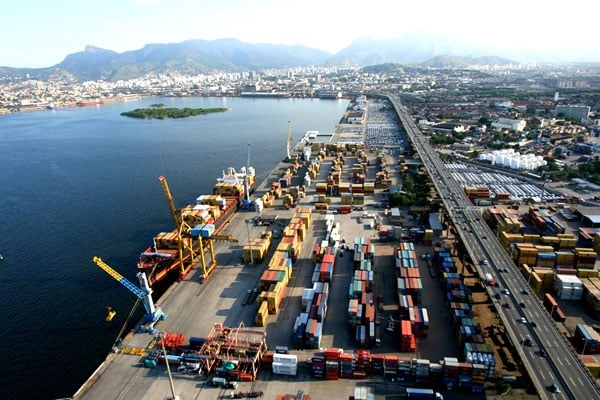
Brazilian customs authorities were in for a surprise on Monday. Upon inspecting a shipping container sent to Rio de Janeiro from the US, they found 20 works of contemporary art worth an estimated $4.5 million, the AP reports.
The two containers were marked as containing the belongings of a 75-year-old Brazilian woman. They had been shipped from Florida. Brazilian authorities don’t buy the front, however, alleging instead that a company was using the woman’s move to evade import and sales taxes on the artworks.
Among the 20 pieces are works by Rio de Janeiro–based artist Beatriz Milhazes and São Paulo–based street art duo Otavio and Gustavo Pandolfo (better known as Os Gêmeos). The only work on which an estimated monetary value has thus far been placed is a sculpture by noted Rio-based postwar artist Sérgio de Camargo, who died in 1990. The unidentified piece is valued at $900,000.
According to authorities, the works were purchased in recent auctions and from galleries internationally before being hidden away in the containers. Brazil is known for its remarkably high import and sales taxes levied against goods purchased abroad or brought into the country for sale. Those can reach as high as 60 percent of the value of the goods, to be added to the cost of their shipment and insurance. The Federal Revenue Service explained, however, that artworks can be exempt from those hefty fees if they are brought into the country as baggage.
Tax Evasion?
The office’s chief inspector, Ricardo Lomba, said that his team is investigating whether the smuggled artworks are part of a money laundering operation. Beyond the tax evasion, this would have allowed the unknown buyer to conceal his or her identity and whether the money used to purchase the works had arisen from illegal means.
Understandably, considering the heat that the find has drawn, no one has come forward to claim the artworks. Investigators have also remained hushed about how they were tipped off about the existence of the works in the container.
All 20 of the pieces are currently in storage at the National Museum of Fine Arts in Rio de Janeiro. If they remain unclaimed, they will enter the country’s national collection. (Not a bad outcome for the artists, we must say.)